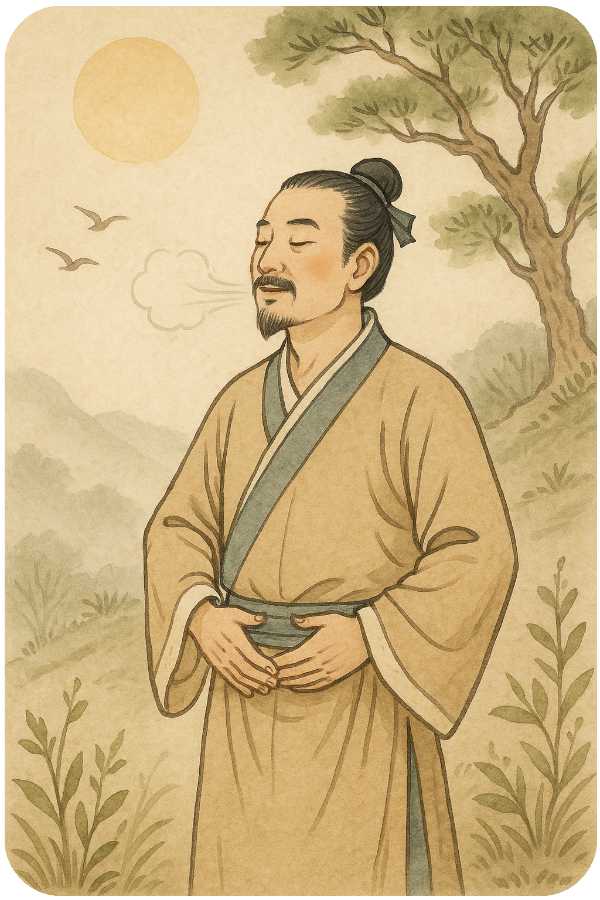Managing Diabetes:
A Complementary Approach with Western Medicine and TCM
Diabetes is one of the most widespread chronic conditions in the world, affecting how the body regulates blood sugar. In the United States alone, approximately 38.4 million people—about 11.6% of the population—are living with diabetes, according to the CDC. Type 2 diabetes is by far the most common, though type 1 and gestational diabetes also present ongoing challenges. While Western medicine focuses on regulating blood sugar through medication and lifestyle changes, many people are also turning to Traditional Chinese Medicine (TCM) for additional support.
Rather than replacing conventional care, TCM works alongside it—offering a complementary path that addresses the individual’s whole system, not just blood glucose levels. Patients who integrate the two approaches often find that TCM helps them manage symptoms, reduce side effects, and stay more engaged in their self-care routines.
Western Medical Care: The Foundation of Diabetes Management
The cornerstone of Western diabetes treatment includes:
- Medication: Most people with type 2 diabetes begin with metformin to improve insulin sensitivity. Other medications include SGLT2 inhibitors, GLP-1 receptor agonists, and insulin therapy, depending on the individual’s condition and progression.
- Diet and Lifestyle: Nutrition plans focus on regulating carbohydrate intake and reducing added sugars and saturated fats. Regular exercise is encouraged to improve insulin function and support weight management.
- Monitoring: Routine blood glucose checks and A1C testing help track progress and inform medication adjustments.
These approaches are essential, especially in managing long-term risks like heart disease, kidney damage, and nerve complications. But despite these tools, many patients continue to experience fatigue, digestive issues, stress, or difficulty maintaining consistency.
TCM: A Holistic Ally in Diabetes Care
This is where Traditional Chinese Medicine can help. From a TCM perspective, diabetes is associated with a condition traditionally called xiaoke (“wasting and thirsting”), though modern cases may look quite different. TCM does not treat blood sugar directly but focuses on balancing the organs and systems thought to contribute to the disease’s patterns—especially the spleen, kidneys, and lungs, depending on the presentation.
Here are some of the ways TCM may support diabetes care:
- Acupuncture: Studies suggest acupuncture may help regulate insulin sensitivity, reduce inflammation, and improve peripheral circulation. It’s often used to manage fatigue, neuropathy, or stress associated with chronic illness.
- Herbal Medicine: Custom herbal formulas are tailored to the individual’s pattern—such as yin deficiency with internal heat or spleen qi deficiency—and may help with energy, digestion, or thirst. These formulas are used alongside medication, not as substitutes.
- Dietary Therapy: TCM dietary guidance often aligns with common-sense nutrition but adds nuance, recommending warm, easy-to-digest meals that support organ function and avoid internal dampness or stagnation.
- Mind–Body Practices: Movement systems like Qigong or Taiji (tai chi) provide gentle physical activity while also calming the nervous system. These practices support glucose regulation and emotional balance, and they’re especially valuable for people who feel overwhelmed or disconnected from their bodies.
Complementary in Practice, Personalized in Approach
In real-world care, many patients use both systems side by side—taking prescribed medication while also attending acupuncture sessions, preparing herbal teas, or walking through a Qigong form each morning. This approach reflects the reality that managing diabetes is not just about numbers—it’s about the daily experience of living in the body.
Of course, coordination is key. Any herbs or supplements should be discussed with a medical provider, and TCM practitioners benefit from understanding a patient’s medications and lab results. When the two approaches are integrated thoughtfully, the result is a more personalized, sustainable form of care.
Conclusion
Diabetes management doesn’t have to follow a single path. Western medicine offers critical tools to control blood sugar and prevent complications. TCM adds dimension—supporting energy, digestion, circulation, and emotional steadiness. Together, they create a more complete picture of health—one that treats the person, not just the disease.


